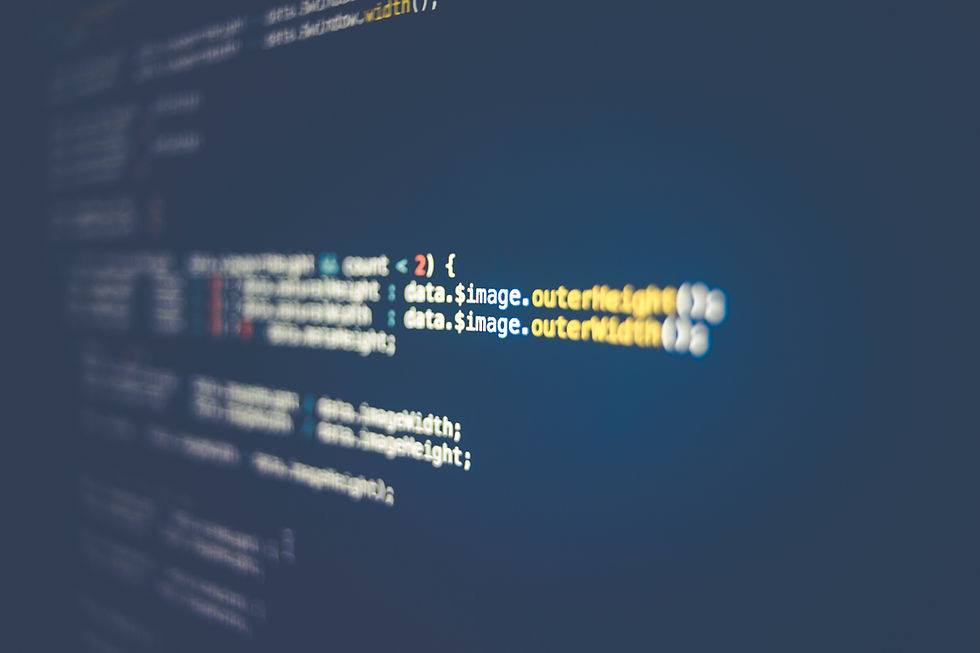Clean Code (part 1)
- GPr Sistemas

- Jan 25, 2024
- 1 min read
Updated: Apr 11, 2024
Developing clean code is a fundamental skill for beginning programmers. Based on the principles of Robert C. Martin's book "Clean Code", in this article we will explore five essential guidelines for writing clearer and more efficient code.
Use Names that Reveal Your Purpose
Choosing descriptive names promotes readability, making code more understandable. Clear names facilitate collaboration and maintenance, saving time and minimizing errors.
Don't Make Comments That Only Make Sense to You
Self-explanatory code reduces the need for comments, improving communication between team members. Comments should be used sparingly, focusing on clarity.
Beware of Comments that Convey False Information
Accurate and up-to-date comments ensure reliability, avoiding outdated information that could lead to misunderstandings.
Avoid Using the Same Word for Different Purposes
Avoiding reusing words for different purposes promotes consistency, simplifying code understanding.
Avoid Code Repetition
Eliminating duplication simplifies maintenance, makes code more concise, and contributes to a solid foundation.
Conclusion
Adopting these clean code practices is a benefit for any developer, regardless of experience level.
By including these principles in the development process, you not only create more efficient and understandable code, but also an environment conducive to continuous improvement.
Striving for clarity, consistency, and efficiency in code not only makes daily work easier, but also lays a solid foundation for long-term professional development. Therefore, cultivating clean code habits from the beginning of your programming journey is a valuable and rewarding practice.
Authors:
Daniel Pardinho - Software Developer
Robson Matheus - Software Developer
Vinicius Marcondes - Marketing and Communication


Comments